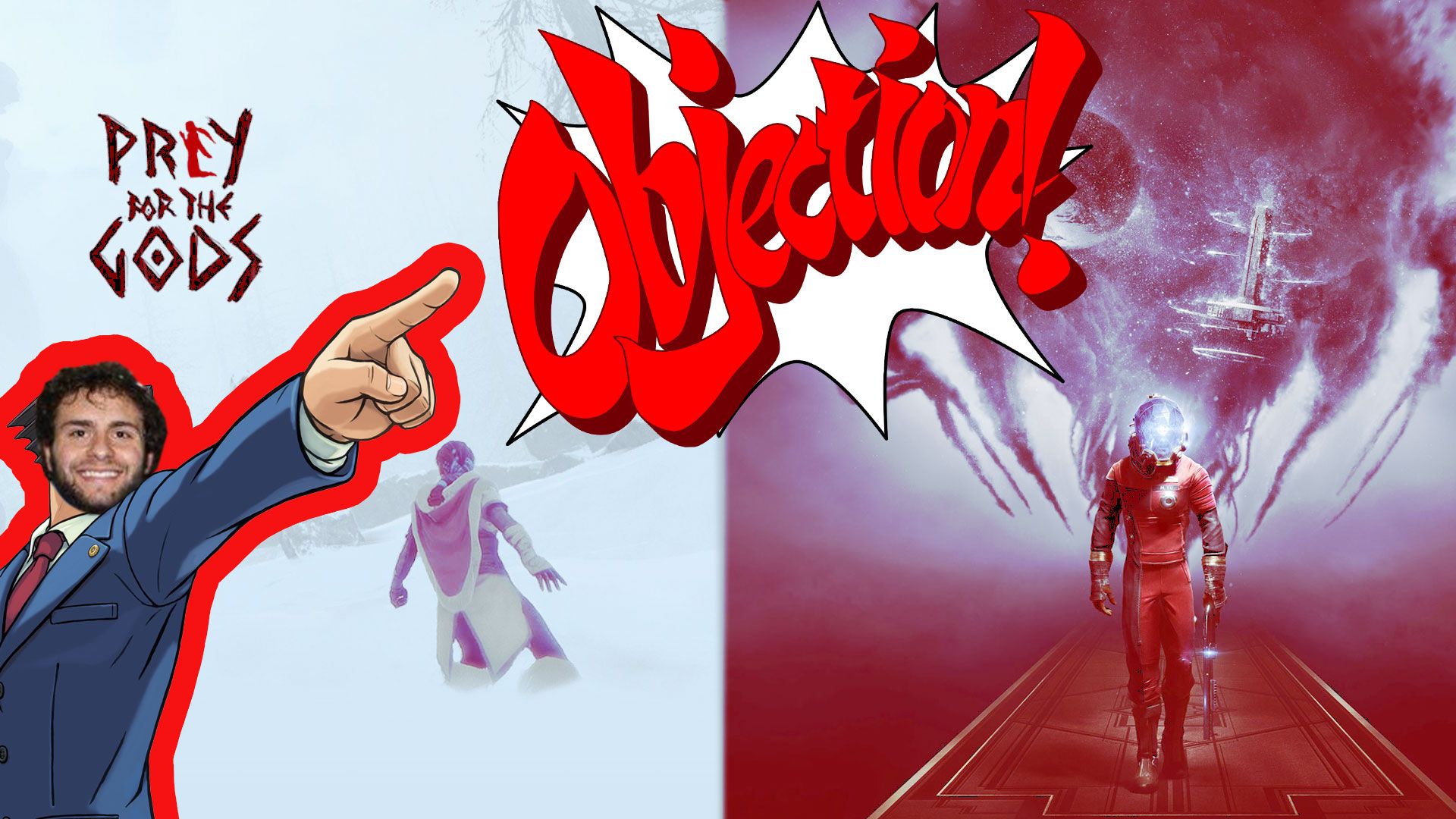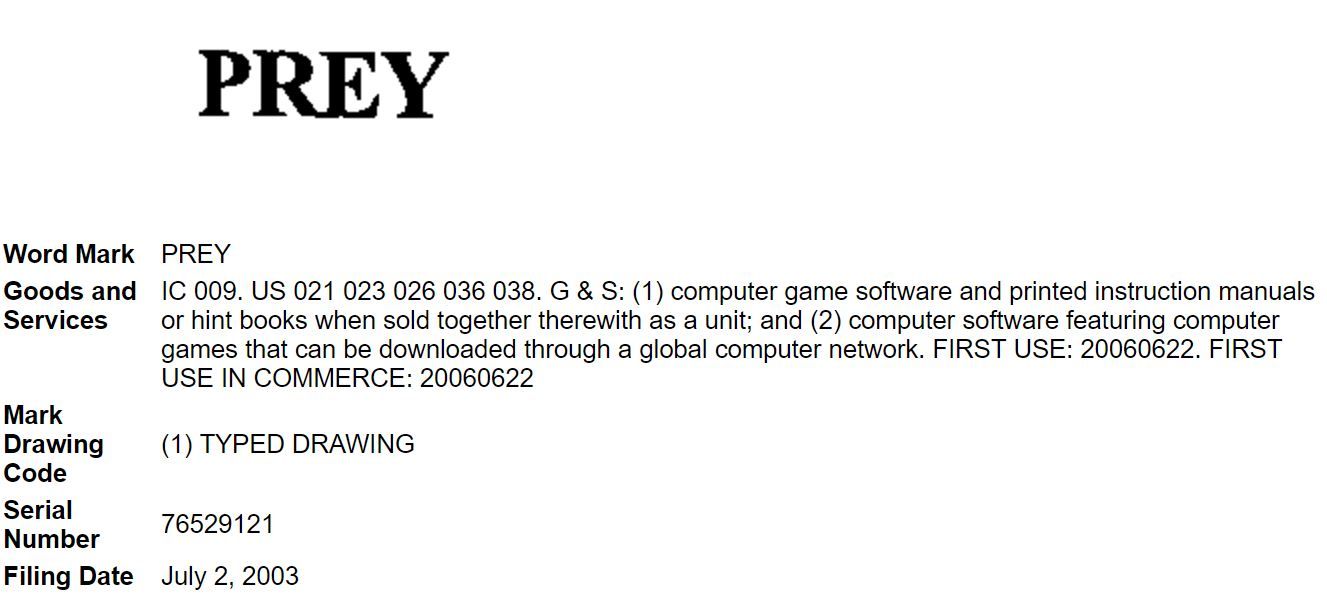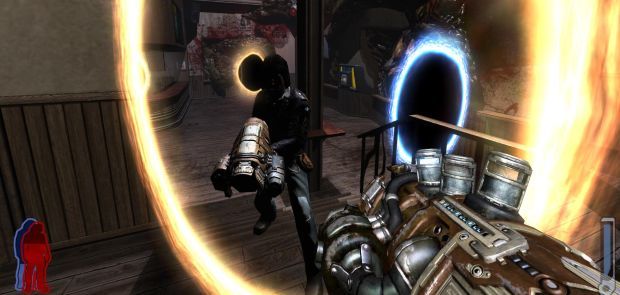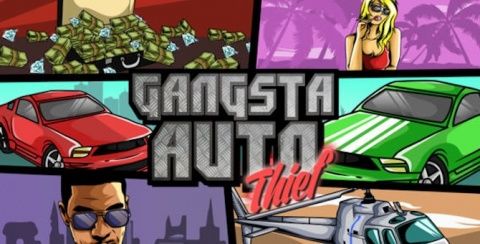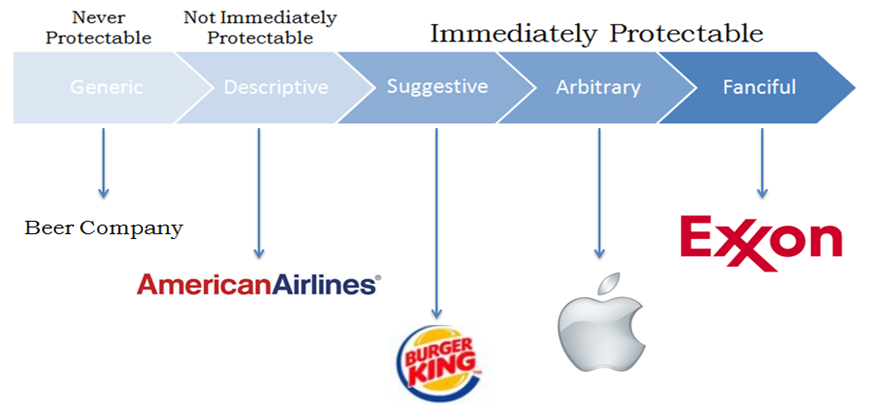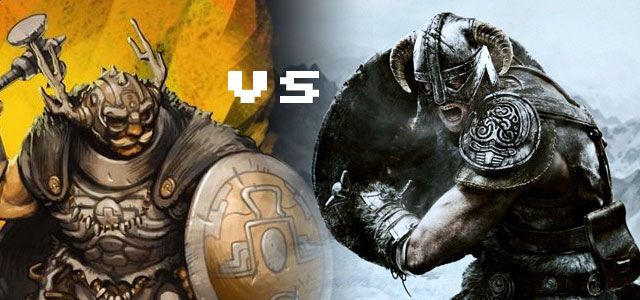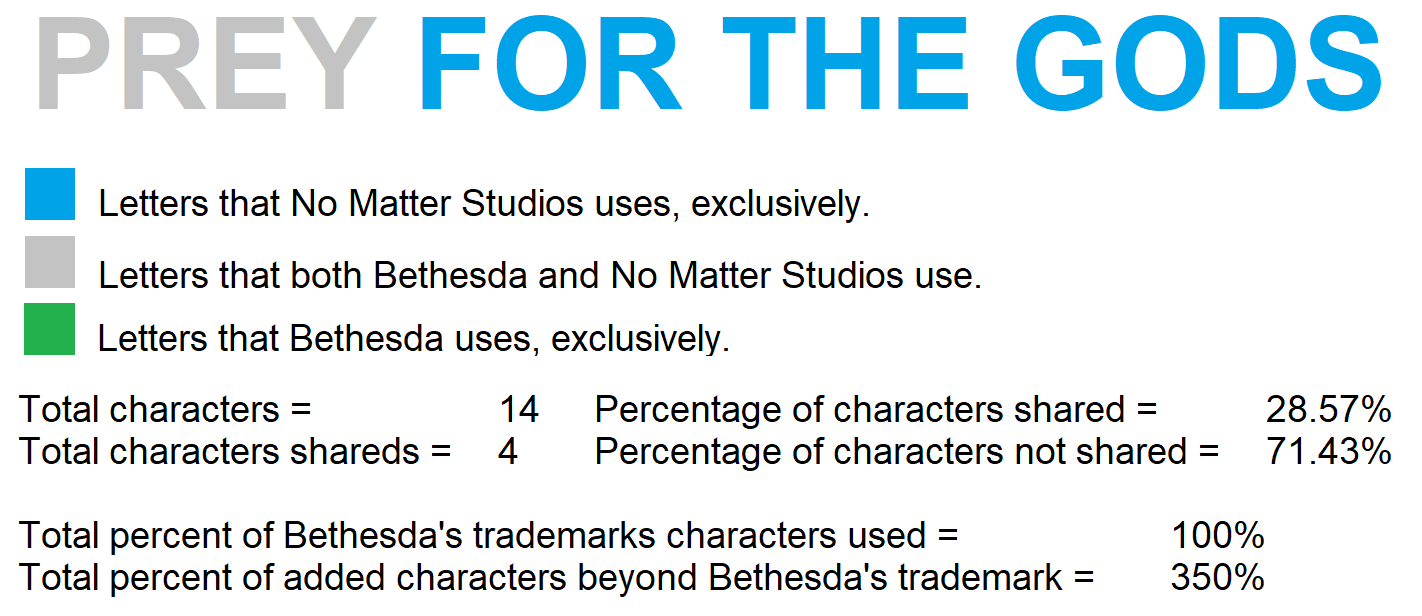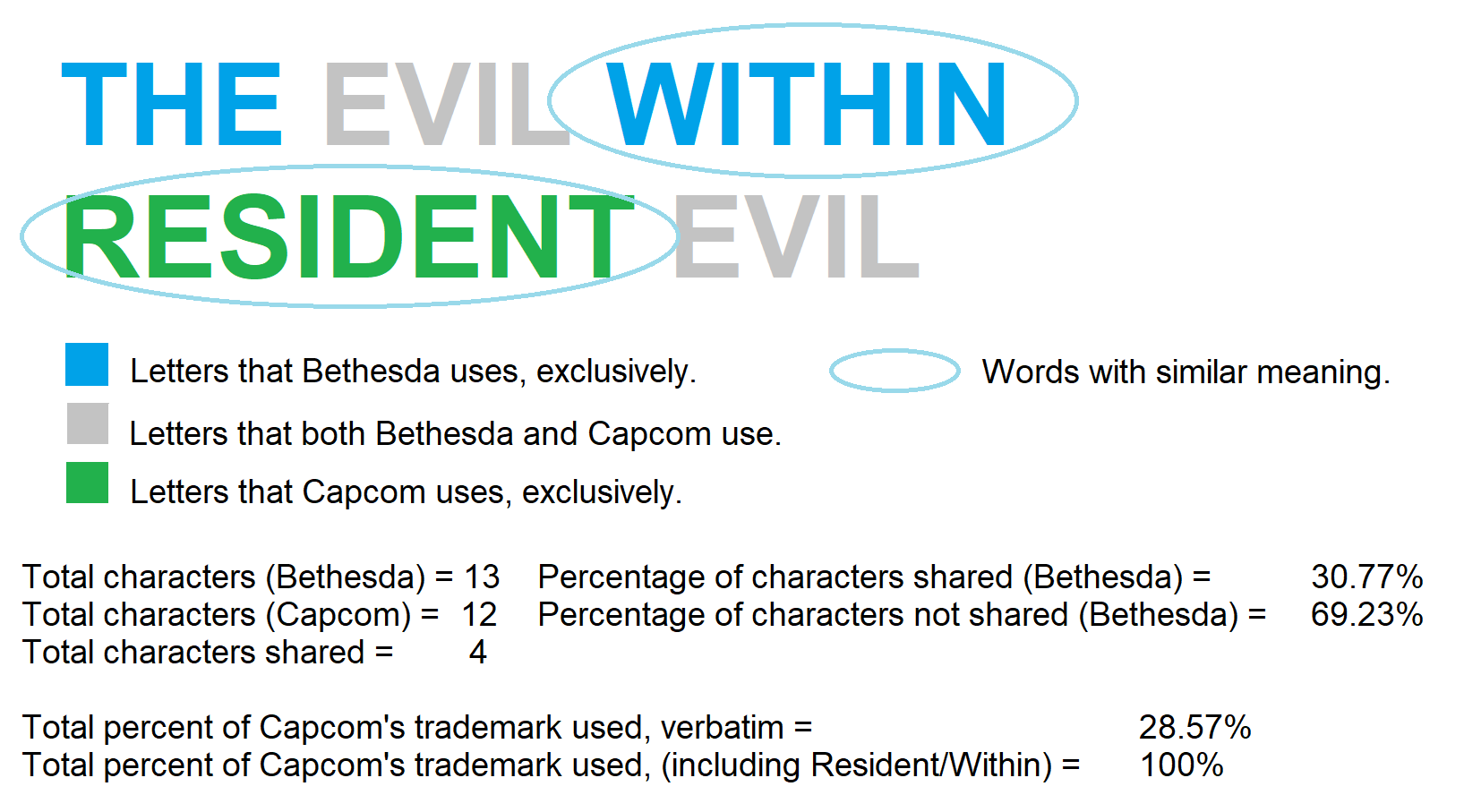All rise! This court of DualShockers is now in session.Only a few days ago, we heard that developer No Matter Studios would be changing the name of their Kickstarted game from "Prey for the Gods" to Praey for the Gods. And while their new name is arguably way more interesting in concept and execution, the reason for the change is less savory. Namely, the looming threat of litigation from Bethesda Softworks and their parent company, ZeniMax Media (combined in this article as just "Bethesda").Why does ZeniMax Media, a publishing giant that has its tendrils in such major studios like Bethesda (Fallout, The Elder Scrolls), id Software (Doom, Quake, Wolfenstein) and Arkane Studios (Dishonored), feel so threatened by this grassroots indie project? Their latest tentpole release – Prey – falls within the previous name "Prey for the Gods" and likely sounded too similar to their backup, stylized name "Præy for the Gods." According to ZeniMax, this is a cut-and-dry case of trademark infringement. If Bethesda didn't step in, No Matter Studios' trademark would have cost them their claim to the "Prey" trademark, and any brand awareness associated with it.But does it? Bethesda has historically been known for their bullish attitudes for protecting their own trademarks. And as someone with a Juris Doctor degree specializing in intellectual property law, who also happens to write about video games, I think there are too many wrinkles in their case.Let's explore the history of both of these trademarks, the foundations of trademarking in the United States, and you – fair readers of DualShockers – can make the decision if this is corporate bullying or earnest protection for their own property, dearly beloved by fans.
History of "Prey":
If you've been following games media, there is a good chance you've heard of the Prey series. Developed by Human Head Studios and originally published by 2K Games, the first rumblings of the title emerged in a 2003 trademark listing for a video game – roughly a decade and a half ago.
The original Prey launched exclusively for PC and Xbox 360, offering a unique take on first-person shooting gameplay. At the time, it featured some pretty off-the-wall mechanics, including the ability to use portals or alter gravity in-game – both mechanics would be more successfully pulled off by Portal or Dead Space in the coming years, but the ideas were innovative nonetheless.
The game was largely a success, with an 83 Metacritic score and a million copies sold within the year. More importantly, people were clamoring for a sequel for the Prey brand – and a second game would come, just not anytime soon.
The decade post-Prey's launch was a bit rocky, with the announcement and cancellation of Prey 2. Within that time, 2K and Take-Two Interactive sold the property to Bethesda and ZeniMax Media, who would later scrap the project altogether. According to Pete Hines in 2014, it "wasn't an easy decision" but Bethesda "never felt that it got to where it needed to be."
These remarks struck people as odd – only a year before in 2013, "Prey" had been re-trademarked by Bethesda. Why would you secure a trademark for a game you are about to cancel? Outlets began reporting that a new Prey project may be in the works -- this time, a reboot instead of a sequel. And in 2016, the game's official unveiling took center-stage at Bethesda's E3 Press Conference, showing this trailer:
Somewhere between Kotaku's report and the official reveal, the three-person indie team No Matter Studios trademarked two game titles: "Prey for the Gods" and "Præy for the Gods." Months later, after the fated E3 reveal of the rebooted Prey, Praey for the Gods' Kickstarter launched (under the title "Prey for the Gods") looking for a hefty $300,000. Less than 20 days later, the project was fully funded, coming to PC, PS4, and Xbox One in December 2017.
The game showed off an interesting idea, feeling like an indie mix of Horizon: Zero Dawn and Shadow of the Colossus. If you want to visualize that, check out the trailer below:
Unbeknownst to any of the Praey for the Gods backers, a shadow war was waging behind the scenes in the patent and trademark office. Before the Kickstarter's launch, Bethesda sent No Matter Studios a warning that they would be filing suit if they kept the name "Prey for the Gods." Unwavering, No Matter held steadfast in their name decision until Bethesda went after them.
After some debate and deliberation, No Matter Studios gave up both of the marks in early January 2017, claiming they felt sick to their stomach using backer money to combat seasoned attorneys at Bethesda. Without a non-disclosure agreement, No Matter Studios waited four months, letting the news break days before the launch of Prey -- ensuring as much bad press as possible would come to the series.
The Law on Policing "Prey":
Like all things within the law, intellectual property claims aren't black and white -- the decisions for trademark infringement cases rest on precedent and different factors to keep track of. The history of trademarks began somewhere between the settings of RYSE: Son of Rome and the original Assassin's Creed. Specifically, blacksmiths from ancient Rome would create distinctive symbols in their swords and armor to note the creator of fine weaponry.
From that point, trademarks (and the law behind them) carried the same underlying premise – they exist to help consumers of any product or service (be they high class weapons, bread or video games) know who exactly is behind the goods. That way, a person buying a sword or bag of chips can take solace in knowing that products will have consistent quality that they both know and respect.
Without trademark law, for instance, any given Joe Schmo developer could slap "Grand Theft Auto" on their game; the everyday consumer would need far more research into the studio behind it and would be left clueless about the quality of the product. Even worse, Rockstar may not have built the reputation of quality that surrounds their name.
And trademarks are a hell of a tool for creators and inventors. While other intellectual property rights like patents (inventions) or copyright (writings) can grant people exclusivity for only a few years, trademarks are an endless monopoly on the brand. Which makes sense – you can change an invention every few years and you don't need rights for your music after you die. But you can't change your brand without losing the reputation and notoriety you, or an entire company, has built.
Now, not everything under the sun can be a trademark – often names, flags, and things too generic/descriptive to the item you are trying to sell can't be trademarked. For instance, you can't name a brand of potato chips "Chips" or "Salty" – no person grabbing a bag of chips off a store shelf could tell the difference between the brand name and the product. But if you created your own distinct, fanciful name for your brand ("Frangles") or used a word that could only arbitrarily describe a chip ("Pillow"), you are in the clear for getting a trademark approved.
Finally, companies aren't done with their duties once they get a trademark. After someone gets approved and registered for a trademark, they have the duty to make sure their brand doesn't become generic -- a practice known as "policing." And policing your brand is a necessity; if you get careless and your trademark becomes generic, it doesn't matter that you had exclusive rights -- you lose the rights to your brand. Don't believe me? It's the exact reason why the Otis Elevator Company lost the trademark for "escalator" – now any moving stairs can go by that name.
When another company comes along with the same trademark (or one that is too similar), owners of a company need to file an objection with the United States Patent and Trademark Office (USPTO) – otherwise you risk losing the monopoly on your own brand. However, whether something is trademark infringement isn't black and white but a question of fact, left up to professionals – people making decisions will look at the two trademarks, the products they describe, the presentation of logos, the markets they are going to be sold in, and many other factors.
As an example, when Bethesda scrapped with Mojang over the name Scrolls in the late 2000's there was a debate over whether using "Scrolls" as a title was trademark infringement. When Bethesda had held a trademark on "The Elder Scrolls" for their fantasy game, Mojang was trying to develop a card-based fantasy game simply titled Scrolls.
The US Patent and Trademark Office noticed that "Scrolls" was just as shortened version of "The Elder Scrolls" -- both marks sounded similar, and the average consumer could confuse it for an abbreviation. Even more damning, both Scrolls and The Elder Scrolls were video games that traveled in the same market (Steam) and carried a similar style and setting, albeit much different gameplay. Just look at the photo of character design above and say there isn't an ounce of confusion.
The USPTO never came to a final opinion on the matter -- Mojang and Bethesda settled out of court where Mojang could keep using Scrolls, just without the trademark registered to their name and with a promise never to make a competitor to The Elder Scrolls.
Prey vs. Prey for the Gods -- The Arguments:
As mentioned above, rarely is anything in law black-and-white; more typically it falls in grey area. And both Bethesda and No Matter Studios have compelling points to why they should win.
No Matter Studio is obviously the underdog in the fight, with much less resources – one of the named reasons why they decided to settle the case. However, despite limited funds, their claim that it is not infringement would likely run out of the gate noting that Prey for the Gods is barely similar. Looking past the fact they are both video games, the term "Prey" only takes up slightly more than 25% of the words and "Prey for the Gods" 350% of Prey's characters.
Outside of that, No Matter Studio can easily point out that Praey for the Gods is a snowy, wilderness-based title with fantasy-like setting. Dragons, bows and arrows reign supreme in every trailer. Quickly compare that to Arkane's Prey which couldn't be further from that setting – mixing horror and space, along with first-person gameplay, the two games are seemingly as far apart stylistically as you can imagine. What gamers (or everyday consumers) are confusing the two?
The logos both have different style – futuristic versus tribal – and the games are made in two very different engines: CRYENGINE for Prey, Unity for Praey for the Gods.
Meanwhile, Bethesda and Zenimax will come from the other end – they have held the "Prey" trademark for nearly decade. In fact, with the exception of PlayStation 2's WWII dogfighting game Iron Aces 2: Birds of Prey and 2010's PC trademarked (but abandoned) title Wings of Prey, the term "Prey" has been largely untouched in reputable game titles altogether. With little else out on the market, the term "Prey" on its own is as signature to Arkane Studios and Bethesda as "Uncharted" is for Naughty Dog.
Though the setting, themes and mechanics are almost nothing alike between Praey for the Gods and Prey, there are distinct similarities that people (less accustomed to either game) may get confused by: they are both video games, they are both releasing on the same platforms (PC, PS4, Xbox One) and storefronts (Steam, PSN, Xbox Store), and they are largely single player experiences.
Anyone looking to buy these games digitally does have the chance to be confused, assuming they are operating with very little knowledge of the game. The first thing people will type when searching for either game is "Prey," and both games would come up.
The game title Prey and "Prey" (within "Prey for the Gods) sound and looks phonetically the same, which could be a huge point of confusion. But only if you look past the fact that there are three other words that follow in No Matter Studio's game.
But if Bethesda is right, and "Prey for the Gods" is infringement, then who is to say that Injustice: Gods Among Us or any of the other 50 games with "Gods" in the title aren't equally infringing? Must every new studio look for words never used in any game before?
Hell, that argument sounds untenable even for Bethesda – who may in that case be infringing on Resident Evil's term "Evil" in their 2014 horror game, The Evil Within. And when comparing the two games, The Evil Within/Resident Evil is far more similar than Praey for the Gods/Prey. From one side of the argument, it seems like Bethesda is looking to have their cake and eat it, too.
Bethesda would likely argue that they have won cases on the same grounds before --  Bethesda's Peter Hines mentioned only a few days ago that they won the trademark battle over Mojang for similar reason. However, that statement (above) is at best misleading, at worst revisionist history.
Bethesda never formally won an in-depth legal action over "Scrolls" -- it was settled out of court, on the condition that Mojang not follow through with their trademark registration. At no point did Mojang or their owners Microsoft mount a vigorous defense to the trademark office -- they simply abandoned it after a successful negotiation.
Further, there are more than enough distinctions to separate the "Scrolls" and "Prey for the Gods" comparisons. "Scrolls" is seemingly a shorter version of "The Elder Scrolls;" "Prey for the Gods" adds substantially to the single word "Prey." Also, "Scrolls" carried a similar setting and theme of medieval dark-fantasy that we see in The Elder Scrolls series; as mentioned above, Prey and Praey for the Gods couldn't be any more distinct thematically.
Closing Arguments:
As you can see, trademark cases are rarely cut-and-dry. And this case won't see a resolution in court – the fact of the matter is Bethesda has deeper pockets and more means to push litigation where indie developers can't respond. When you are a fledgling indie studio pitted against a pillar in the gaming industry, there is nothing that can really be done.
And, truth be told, Praey for the Gods simply looks cooler -- the change may be for the best.
But now you've seen the law and arguments on both sides – who do you think wins the case?
The Verdict:
https://docs.google.com/forms/d/e/1FAIpQLScg91e9ujpNlVcfVzEQ7fTvWm0qj9v7qNIW3xh9_oaLG_-H2A/viewform?embedded=true

